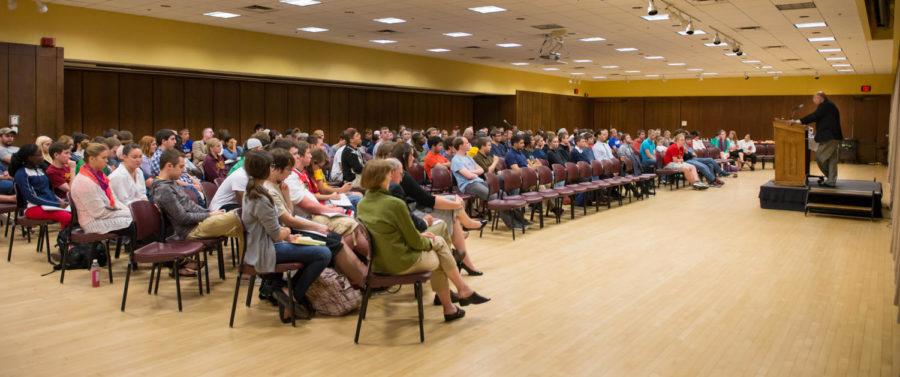Former U.N. Secretary General Ramesh Thakur speaks on emerging powers
Ramesh Thakur, former Assistant Secretary-General of the United Nations, currently directs the Center for Nuclear Non-proliferation and Disarmament at Australian National University gave a lecture that was especially timely in light of the situations in Libya and Syria over the past two years in Sun Room, Memorial Union on Tuesday, Oct. 1.
October 2, 2013
The students of Iowa State had the opportunity to listen to a lecture focused on the current state of U.S. foreign policy and emerging world powers on Tuesday evening.
Ramesh Thakur is the former secretary-general of the United Nations, as well as the co-editor of the “Oxford Handbook of Modern Diplomacy.”
Thakur, during his service within the U.N. in 2001, served as the chief author of the “Responsibility to Protect” report, which is in place today as a guide for responding to crimes against humanity. Thakur spoke about such recent events as the uprising in Libya and the threat of NATO interference in Syria.
“There exists a wide world out there much larger than the U.S., or the trans-Atlantic community,” Thakur said.
Thakur went on to speak about issues such as unmanned drone strikes, the conflict in Syria and the United Nations’ involvement therein.
“I thought it was a terrific turnout,” said James McCormick, chairman of the Political Science Department, “Thakur challenges the U.S. to think about when they use force. Is it really ethical?”
The talk gave students an opportunity to hear the unique view of Middle Eastern conflict from an expert in such events.
“I think it gave people a perspective on what else is happening out there. It’s a good thing for people to be exposed to,” said Michael Craighton, sophomore in political science, after attending the lecture.
The lecture was part of the Government of the Student Body’s World Affairs Series and was supported by the political science department, as well as the U.S. Institute of Peace.

















